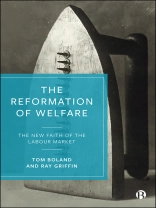Western culture has ‘faith’ in the labour market as a test of the worth of each individual. For those who are out of work, welfare is now less of a support than a means of purification and redemption. Continuously reformed by the left and right in politics, the contemporary welfare state attempts to transform the unemployed into active jobseekers, punishing non-compliance.
Drawing on ideas from economic theology, this provocative book uncovers deep-rooted religious concepts and shows how they continue to influence contemporary views of work and unemployment: Jobcentres resemble purgatory where the unemployed attempt to redeem themselves, jobseeking is a form of pilgrimage in hope of salvation, and the economy appears as providence, whereby trials and tribulations test each individual. This book will be essential reading for those interested in the sociology and anthropology of modern economic life.
Chapters 1 and 3 are available Open Access via OAPEN under CC-BY-NC-ND licence.
Tabela de Conteúdo
Introduction: Paradoxes of Welfare
Archaic Anthropology: The Presence of the Past in the Present
Reform: Policies and the Polity
Vocation: Doing God’s Work
Purgatory: The Ideal of Purifying Suffering
Pilgrimage: The Interminable Ritual of Jobseeking
Curriculum Vitae: Confessions of Faith in the Labour Market
Conclusion: Parables of Welfare
Sobre o autor
Ray Griffin is Lecturer in Strategic Management at Waterford Institute of Technology. He is Principal Investigator of the HECAT 2020 Disruptive Technologies Supporting Labour Market Decision Making Project.












